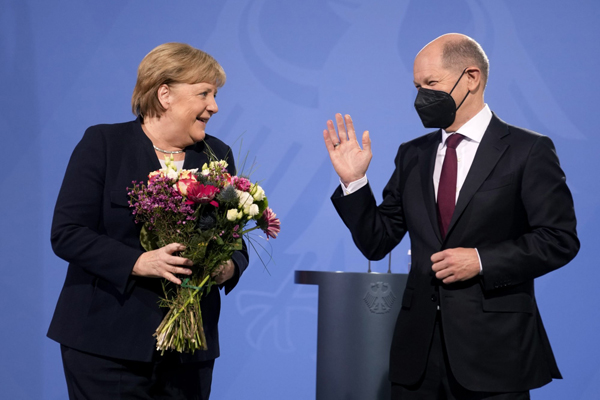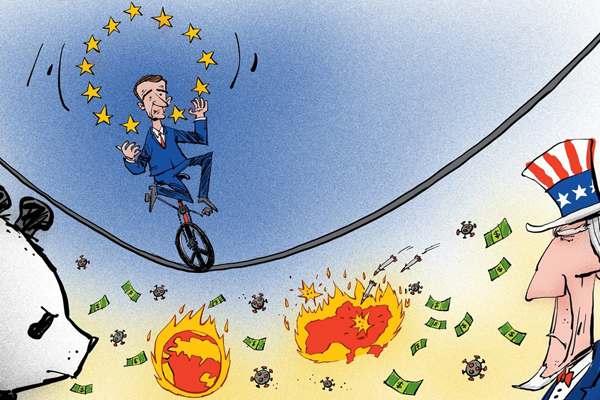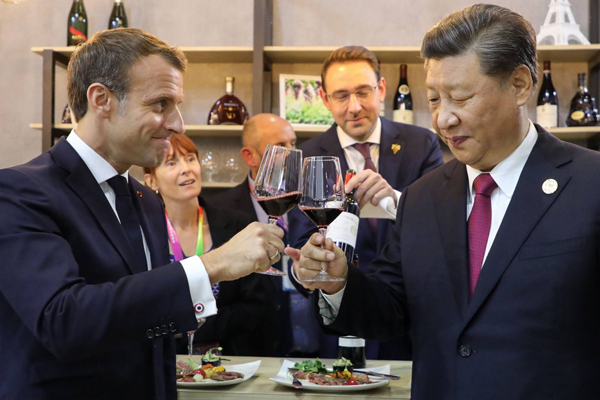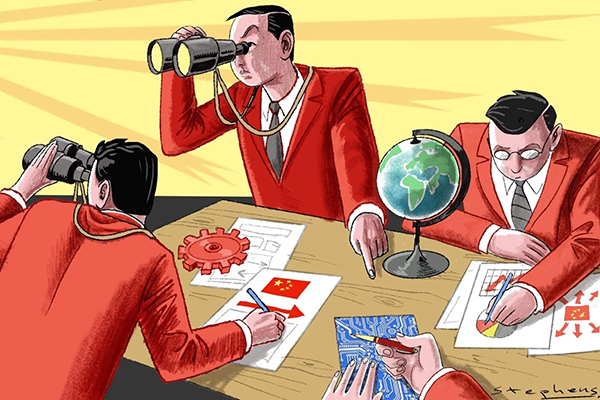【SCMP】Wang Huiyao: How Macron’s return as French president could be a win for both the EU and China
April 28 , 2022■ Macron has been championing ‘strategic autonomy’ for the European Union at a time when the need for the EU to come into its own as an independent force for peace and international cooperation is greater than ever.
■ His stance on China seems to be pragmatic and pro-business, recognising the possibility of working closely with Beijing on shared interests, despite competition in some areas.
By Wang Huiyao | Founder of the Center for China and Globalization(CCG)
On Sunday, Emmanuel Macron beat Marine Le Pen to become the first French president since Charles de Gaulle to win re-election while holding a majority in parliament. Macron’s victory confirms his place as the leading voice in the European Union after Angela Merkel’s retirement as German chancellor in December.
In his second term, the French president will play a pivotal role in shaping foreign policy at a critical juncture for the European Union. Ukraine will no doubt dominate the agenda for some time, but how the EU recalibrates ties with Beijing and navigates the increasingly tense and complex US-China relationship remains a crucial question.
Macron’s re-election is positive for the outlook on China-EU relations. Like many European politicians, his views on China have hardened in recent times. Fundamentally, though, he appears to share Merkel’s pragmatic, pro-business stance and wants the EU to work more closely with China on shared interests, even as the two sides compete in other areas.
The outcome is preferable to a Le Pen victory. That would have cast doubt over France’s role in Europe and the whole EU project at a time when the bloc needs a strong leader.
However, Macron will have his work cut out for him when it comes to improving relations with Beijing. Bilateral ties are at a low ebb, as seen in the recent EU-China summit, which failed to produce a joint statement or any specific agreement.
At the same time, European views of security and foreign policy are undergoing a sea change. For 16 years, Merkel was Europe’s leading proponent of stronger ties with China.
Following her departure and the war in Ukraine, Europe’s political landscape has shifted dramatically. Many of Merkel’s views on foreign policy have been repudiated, and the coalition government of her successor Olaf Scholz seems determined to pursue a harder line on China.
 New elected German Chancellor Olaf Scholz (right) and former chancellor Angela Merkel at a handover ceremony in Berlin on December 8, 2021. Photo: AP
New elected German Chancellor Olaf Scholz (right) and former chancellor Angela Merkel at a handover ceremony in Berlin on December 8, 2021. Photo: AP
Across Europe, there is a growing tendency to see the world in opposing camps, pitting democracies against autocracies. The widely held view that Beijing has not done enough to oppose Russia’s invasion of Ukraine has further soured perceptions of China, which were already trending downwards. In 2020, unfavourable views of China in France had increased to 70 per cent from 42 per cent in 2002.
Since taking power, Macron has been vocal about his ambitions for the EU, which has long punched below its weight in the international sphere, to become a more independent and influential geopolitical player. Ukraine is a serious test for his push for EU “strategic autonomy” as it has turned concerns to security at home and reinvigorated the transatlantic alliance.
In this age of geopolitical uncertainty, the need for the EU to come into its own as an independent force for peace and international cooperation is greater than ever.
Addressing the European Parliament on January 19, Macron spoke repeatedly of the need for the EU to be a “balancing power”. He has cautioned the EU against rushing to join the United States in ganging up on China as it could lead to the “highest possible” conflict.
Macron is well aware of what can happen if great power relations are not managed well and antagonism is allowed to grow unchecked. In his second term, he should take concrete steps for the EU to fulfil its balancing role in the world. For example, he could encourage the formation of a China-EU-US trilateral mechanism in which the EU plays a mediating role.
Macron should also stand up against hawkish voices in Europe and continue to promote a multifaceted EU policy towards China that allows cooperation on shared interests despite contention or competition in other areas.
Chinese President Xi Jinping (right) and French President Emmanuel Macron taste wine as they visit France’s pavilion during the China International Import Expo in Shanghai on November 5, 2019. Photo: AFP
Climate change is one promising area. Both sides are committed to tackling climate change through multilateral efforts. At the practical level, there is also much to be gained from combining the EU’s experience and holistic approaches to environmental protection with China’s strengths as a supplier of low-carbon solutions.
Reforming multilateralism is another shared interest. In the wake of the Covid-19 pandemic and the war in Ukraine, we badly need to update and strengthen our global institutions. For example, China and the EU could boost efforts to forge consensus on reforming the World Trade Organization and develop a workable plan to revive the organisation.
Last but not least, Macron should work to deepen economic cooperation with China, particularly in areas such as infrastructure. Despite the stalling of the China-EU Comprehensive Agreement on Investment, bilateral economic ties have gone from strength to strength. Last year, China’s trade with the EU rose by 27.5 per cent year on year to record highs as China remains the EU’s largest trading partner.
Despite some reservations in Europe, there are great potential synergies between the Belt and Road Initiative and the EU’s new connectivity strategy, the Global Gateway.
France was the first country to establish a third-party intergovernmental cooperation mechanism with China, under which Chinese and French firms jointly develop projects in third countries taking part in the Belt and Road Initiative. In Macron’s last meeting with Chinese President Xi Jinping in February, the two countries unveiled seven new major joint projects in the fourth round of this scheme with a total value of more than US$1.7 billion.
Macron’s second term begins at a time when security is increasingly winning out over economics as the driving logic of international cooperation. But as the history of the EU shows, economic cooperation is often the best foundation for both growth and security.
During the next five years, Macron should use his mandate to help chart an independent, pragmatic course for the EU that fulfils its potential to be a stabilising force for peace and prosperity during these times of uncertainty.
Topical News See more








